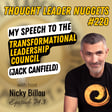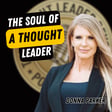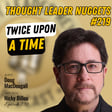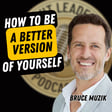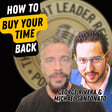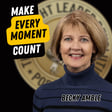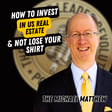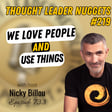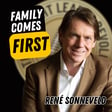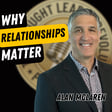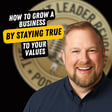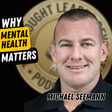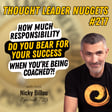
EP572: Geoff Weinstein - The Magic Of Powerful Communication
“One of the most important things about communication, of course, is authenticity.”
“When your communication isn't lean, people check out and they check out quickly.”
Have you ever struggled with public speaking? Don't let fear hold you back. Overcome your fear and practice public speaking through various life experiences. Becoming a great communicator isn't about being a "natural." It's about putting in the reps and embracing failure along the way.
Communication skills are not innate talents bestowed upon a lucky few. Instead, they're cultivated through dedication and effort. Just as you wouldn't expect to become a skilled musician or athlete without consistent practice, the same principle applies to communication. Whether it's mastering the art of public speaking, refining your writing skills, or perfecting the nuances of interpersonal communication, it all comes down to putting in the work.
Along the way, you're going to stumble. You're going to have moments where you don't quite hit the mark, where your message doesn't land as intended, or where you feel like you've fallen short. But those moments of failure are not setbacks, they're opportunities for growth. By embracing failure and learning from your mistakes, you're able to refine your approach, hone your skills, and ultimately become a more effective communicator. It's a journey of continual improvement, one that requires perseverance and a willingness to step outside of your comfort zone.
Geoff Weinstein is a star client from our exclusive mastermind, E-Circle Academy, and a leading global authority in communication. He talks about the importance of persistence and practice in becoming a great communicator. Geoff's journey took a significant turn when he transitioned from working in the hospitality industry to a role in communication within a bank's head office. It was in this new environment that he discovered his true passion for communication and realized the transformative power it held. As he pushed himself in the intricacies of communication within the corporate world, Geoff found himself drawn to the challenge of unraveling its complexities and unlocking its potential for positive change.
Expert action steps:
- Learn about human motivation.
- Cut the fluff.
- Be a chameleon.
Connect with Geoff Weinstein:Website: Visit Geoffweinstein.com to explore more about Geoff's work, his insights, and his upcoming events.
Head over to Geoffweinstein.com/gifts to grab a free PDF copy of Geoff's book and exclusive discounts for his lean email masterclass.
LinkedIn: Geoff Weinstein
Twitter: @weinsg
Instagram: @GeoffWeinstein
Facebook: Geoff Weinstein
Visit eCircleAcademy.com and book a success call with Nicky to take your practice to the next level.
